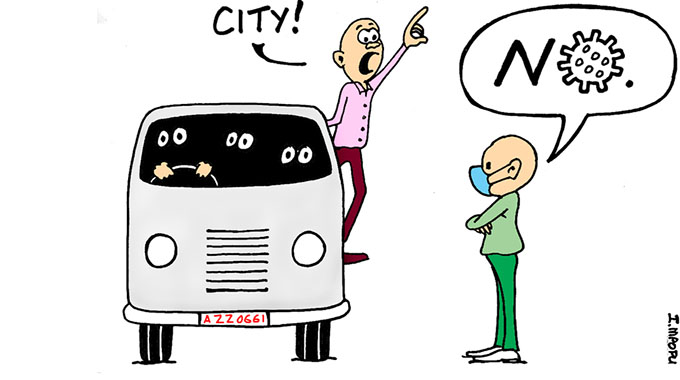Billing authorities need to meet investors half way

Pardon Gotora
Urban Scape
Zimbabwe is in dire need for investors in housing infrastructure provision. Investors come in different forms and sizes. We have local-based investors and foreign direct investors.
But on the local front, we also have diversified investors. There are private corporate investors and what I would call the community-driven investors.
However, from outside looking in, it seems all the authorities mandated to emplace both off-site and on-site infrastructure are on a spree to punish the “beneficiary-investors” or “community-driven investors”.
Ironically, these authorities have abrogated their key responsibilities to these community-driven investors.
Growing up in the dusty villages of Uzumba, my grandfather was a great hunter. Back then, the issues of preservation of natural resources such as wild animals were not as pronounced as they are nowadays.
Friends of the environment were not as visible as they are now in my village. The truth of the matter is that my grandpa did not have the “legs” to run after a kudu or a rabbit. He would always carry his knobkerrie, a spear and an axe.
But he never killed any animal with those weapons.
Instead, he invested in dogs, and I remember his favourite dog which, coincidentally was also my favourite, was called Cheetah, for obvious reasons, and he always used to praise him for his exploits in the bushes.
However, one thing for certain, he would make sure that his dogs got all the offals and the bones from the catch. I was happy with the bones, but definitely not so pleased with the offals.
I did not know what it meant initially, till I asked him the other day.
He explained to me that he was merely incentivising the dogs so that they were kept motivated for the next hunt and they would not prey on the kill.
Fast forward to a few decades later, I joined the great trek to the city.
I later realised that institutions such as the local authorities and the power supply authority were just like my grandfather.
They had no “legs” to keep pace with the exponential demand for infrastructure and services such as electricity, water and sewerage reticulation.
They looked for investors (which I would equate to my grandpa’s dogs). These investors came in the form of multilateral, bilateral, private, and community-driven investors.
Many a times, all the other investors, but the community-driven, have pushed for incentives in return for investing in the basic housing infrastructure or they devise means to recoup their investment.
Infrastructure provision is the prerogative of both central and local government and State enterprises.
In the past, there were numerous turn-key housing projects and site and service schemes.
The beneficiary would only receive the keys to the house, without bothering about the layout plans, designs for water, sewer, electricity, roads and storm water drains.
Only the few technical people like engineers, plumbers, bricklayers and related professionals knew about these terminologies.
The rest of us knew about potable water, waste water and refuse collection services, then subsequently, user fees, rent and rates payable to council or ZESA offices.
Whenever there was a disruption to any of these services, customer care lines were still functional and manned.
At the turn of the millennium, the Government and its State institutions realised that they no longer had the requisite financial resources to invest in off-site and on-site infrastructure.
The multilateral funding dried up due to the economic sanctions imposed on the country.
Private sector investment dwindled due to the then obtaining hyper-inflationary macro-economic environment.
All the odds turned against the conventional housing investors and the sector was virtually coming to a halt. So, just like my grandpa, they had “no legs to run after the kudu”, and they needed “able dogs” to do the chase.
Developments are occurring far away from existing infrastructure due to the concept of lateral expansion. Both off-site and on-site infrastructure is required, but the authorities with that particular mandate claim to be incapacitated.
An idea emerged, and it looked brilliant and just what the doctor ordered. Community-driven initiatives were to become an alternative worth exploiting.
Beneficiaries were urged to organise themselves, mobilise and pool their own resources for the emplacement of infrastructure.
Nobody treated them as investors, but consumers.
ZESA devised a donation form, where the entire infrastructure constructed by beneficiaries is donated to the authority once completed at no cost.
Pursuant to the initiative, ZESA have established subsidiary enterprises like ZENT that sell electricity infrastructure materials to these organised beneficiaries (beneficiary-investors).
However, when it comes to billing, ZESA cast a blind eye to the same beneficiary-investors.
There is no token of appreciation in the form of rates-holidays or subsidised rates for a stipulated period. In actual fact, ZESA abrogated its duties to provide electricity infrastructure.
The responsibility was passed on to end-users cum investors, who are still billed as if the power utility expended money to install the infrastructure.
If they were to wait for ZESA to install the infrastructure, they could as well wait forever.
So better do it yourselves and be “punished” for usurping the utility’s responsibility.
Beneficiaries have done layout plans, surveyed the land, done all the mandatory designs for water, sewer, roads and storm water drains, that are approved by the respective authorities, at no cost to the local authorities.
The same beneficiaries have gone a step further to construct the physical infrastructure in line with the approved designs.
Local authorities have the guts to charge inspection fees to the beneficiary-investors, who are not into property development business, but out of shear need.
Even the private developers and banks and building societies in property development have felt the pinch of being billed exorbitant rates on the infrastructure they are installing on behalf of the local authority.
In short, ZESA and local authorities are merely billing authorities while in addition to corporate social responsibility, we now have beneficiary social responsibility.









Comments